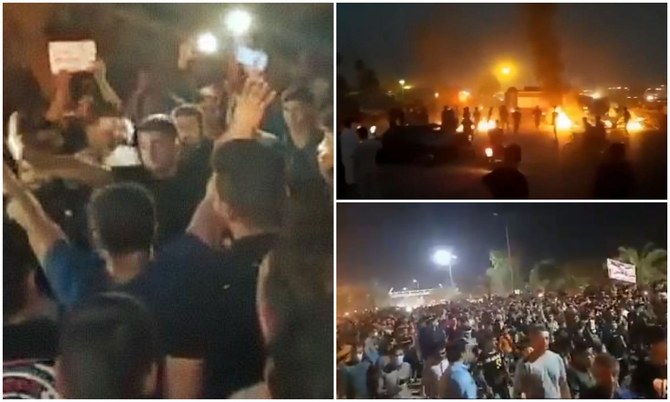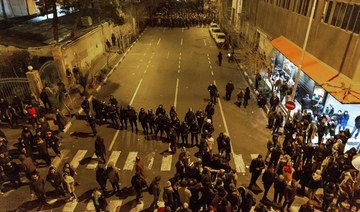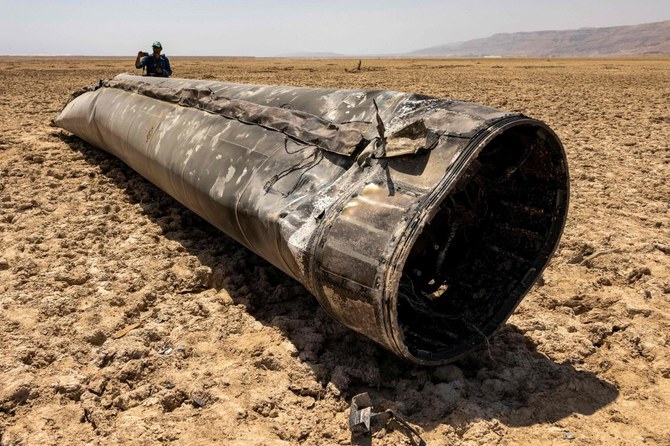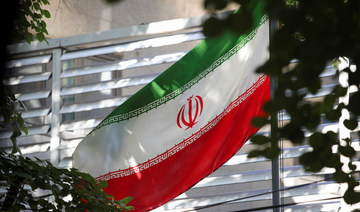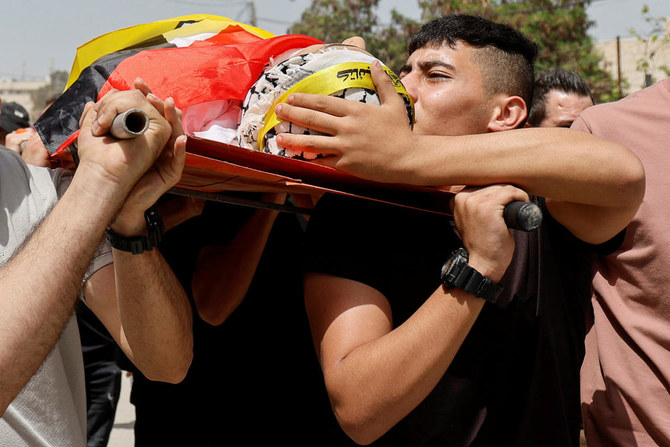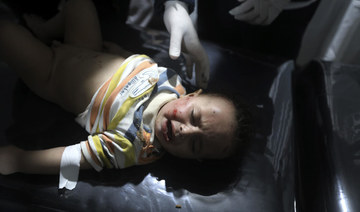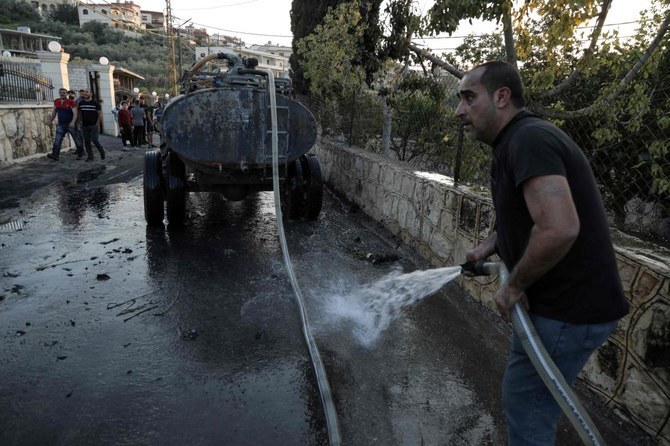LONDON: Iran’s Arab population has been on the frontline of water-shortage protests across cities in Khuzestan province this week.
Protesters, rights groups and activists say the water demand by Ahwazi Arabs is part of wider discontent over historic and systematic racial discrimination.
“The reasons for the protests are many. In fact, there are accumulations of injustice, persecution and racism against Arabs,” a protester told Arab News on condition of anonymity.
Among the reasons are “oil and gas, and now the regime stole the waters of the rivers and dried up their lands,” the protester said, adding that Ahwazi Arabs “face many problems with unemployment and the obliteration of Arab identity.”
The protester said: “The demands are clear and legitimate: Provide agricultural water, restore rivers to their streams, open dams, employ Arabs in oil and gas companies, give freedom of expression and appoint officials from our governorate to feel our pain and concerns.
“Ahwaz hasn’t witnessed an Arab official since 1925. All officials are chosen from the center. They drain the governorate’s money then leave after stealing its wealth.”
Videos shared on social media show water buffalos and fish lifeless on the ground due to dehydration in Ahwazi-Arab marshlands and villages.
Arabs in these areas rely on raising their cattle to get by, and water supply is essential for them to be able to make a living from agriculture.
Khuzestan MP Abdollah Izadpanah blamed the water shortages on “mistakes and unjustified decisions,” including the extraction of water from Khuzestan’s rivers to other provinces.
Among Iran’s Arab community, it is believed that the drying up of marshlands and the diversion of water are part of a state-led effort to displace them and change the province’s demography.
In a viral video released earlier this month, a local Arab sheikh tells officials: “We aren’t going to leave this land. You brought us floods and drought to make us migrate. We won’t leave. This is our ancestral land.”
US-based human rights advocate Rahim Hamid told Arab News: “Many Ahwazi activists have asserted that the state’s ongoing river-damming and diversion projects are part of a demographic change policy intended to force the indigenous Arab people from their lands.”
He added: “Protesters have voiced loud opposition to any such demographic change, chanting ‘no, no to displacement’ and ‘we protect Ahwaz with our blood and soul’.”
In his spring 2021 report, the UN Human Rights Council’s special rapporteur on Iran, Javid Rehman, noted “reports of forced evictions in ethnic minority areas” impacting Ahwazi Arabs.
Amnesty International has so far reported eight people killed by security forces during the protests.
Among them was teenager Hadi Bahmani, reportedly a Bakhtiari, who like others from that community joined the Khuzestan protests in solidarity with Ahwazi Arabs.
Hamid said Tehran is “maligning the protesters as separatist extremists, with regime officials and media adding insult to injury by using their customary racist anti-Arab language in their desperate efforts to delegitimize the protesters’ calls for fundamental human rights.”
Protesters have constantly assured Tehran that the demonstrations are peaceful and that their demands are not tied to separatism.
Instead, they want the regime to address both the water crisis and the multi-layered discrimination that Arabs in the country face.
Despite the oil-rich province, which is Iran’s largest source of foreign revenue, being Ahwazi Arabs’ home, they are one of the most deprived communities in the country and face abject poverty.
In January, Mohsen Haidari, a senior cleric representing Khuzestan in the Assembly of Experts — the deliberative body empowered to appoint Iran’s supreme leader — publically spoke of anti-Arab discrimination being rife in employment.



